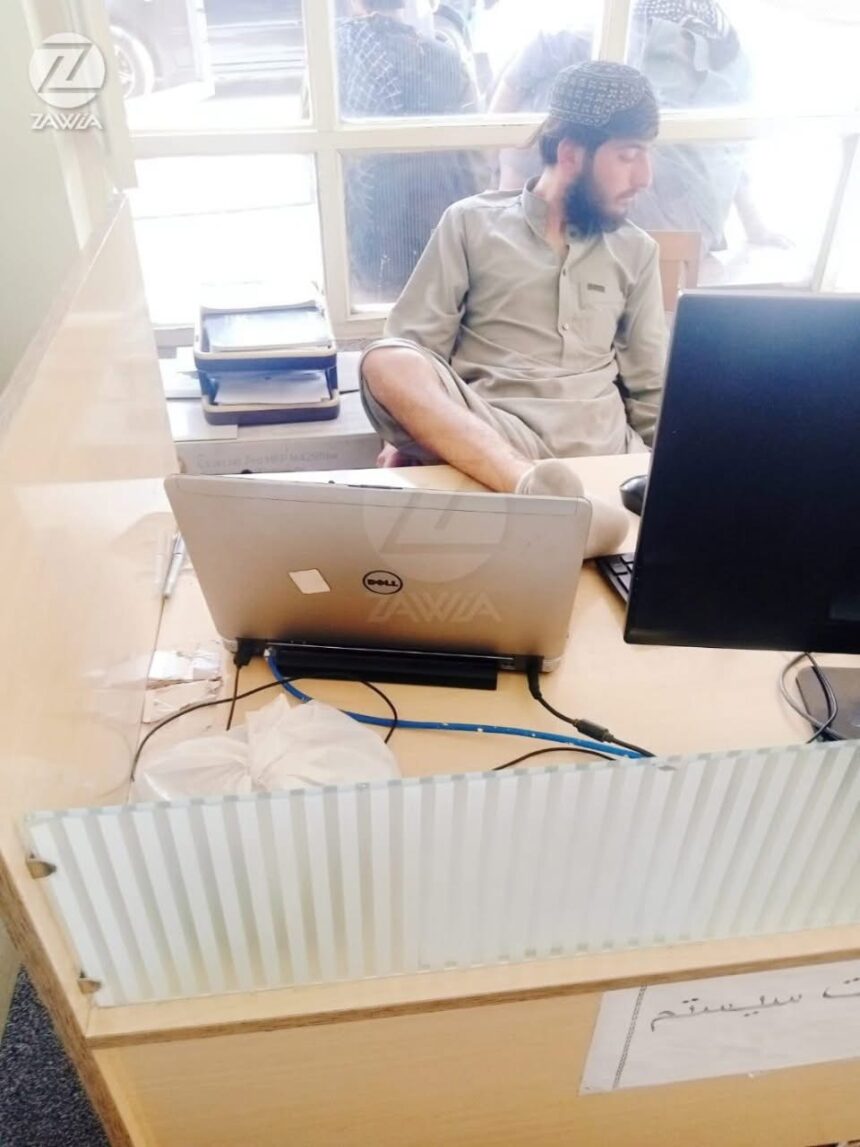RASC News Agency: A disturbing image circulating widely on Afghan social media has once again laid bare the Taliban regime’s systematic failure to uphold even the most basic standards of public administration. The photo, reportedly taken inside the Tax Department of Kabul’s Fifth Municipal District, shows a Taliban official brazenly reclining with his foot propped on the deskcan act of casual arrogance displayed during official working hours, as dozens of citizens wait unattended. According to multiple residents who spoke to RASC News Agency, the official in question has transformed his office into a de facto personal lounge, where public duty is sidelined in favor of tea sessions, gossip, and personal leisure. “This is not an office anymore,” said one frustrated visitor. “It’s a guesthouse disguised as a government department.”
Eyewitnesses described an atmosphere of utter disdain toward the public, where citizensvmany of whom travel long distances for routine tax services are met with indifference, delays, and often outright humiliation. “We are forced to wait outside in long queues for hours,” one resident said. “Meanwhile, Taliban officers sit inside, chatting and laughing as if the institution belongs to them personally.” The behavior of this official, while shocking, is hardly anomalous under Taliban rule. Since seizing power in August 2021, the group has undertaken a sweeping purge of experienced civil servants and replaced them with untrained loyalists whose only qualifications are religious extremism and militant allegiance. The result is an unprecedented collapse in bureaucratic efficiency, professionalism, and basic service delivery.
“The entire apparatus of governance is being run by men who neither understand nor respect public administration,” said a former Afghanistan’s finance ministry employee now living in exile. “They interpret authority as privilege, not responsibility.” The consequences of this administrative incompetence are far-reaching. What was once a functioning public service system has deteriorated into a patchwork of idleness, corruption, and militant entitlement, leaving citizens without access to essential services. Economic uncertainty and inflation fueled by mismanagement and international isolation have only exacerbated the population’s frustrations. In interviews, residents expressed outrage not just at the specific incident, but at what it symbolizes: the Taliban’s broader failure to transition from an insurgent group to a functioning governing body. “They promised law and order,” one resident remarked bitterly. “But what we got is chaos in the name of Islam.”
Despite the circulation of the image and the wave of public indignation it sparked, there has been no official statement or disciplinary action from the Taliban authorities a silence many interpret as tacit approval of such behavior. For a regime obsessed with enforcing religious conformity and gender segregation, the absence of accountability within its own ranks is seen by many as hypocrisy at its most glaring. Analysts warn that such institutional decay, if left unaddressed, will not only alienate the Afghanistani population further but could also deepen the country’s descent into administrative paralysis. “You cannot build a state on intimidation and ideology alone,” said one regional observer. “Without professional governance, even authoritarian rule collapses under its own weight.”
As the Taliban continues to project an image of control and stability, images like this of foot-on-desk arrogance in the face of public suffering tell a more honest story of a regime mired in incompetence, intoxicated by power, and utterly detached from the needs of its people.






